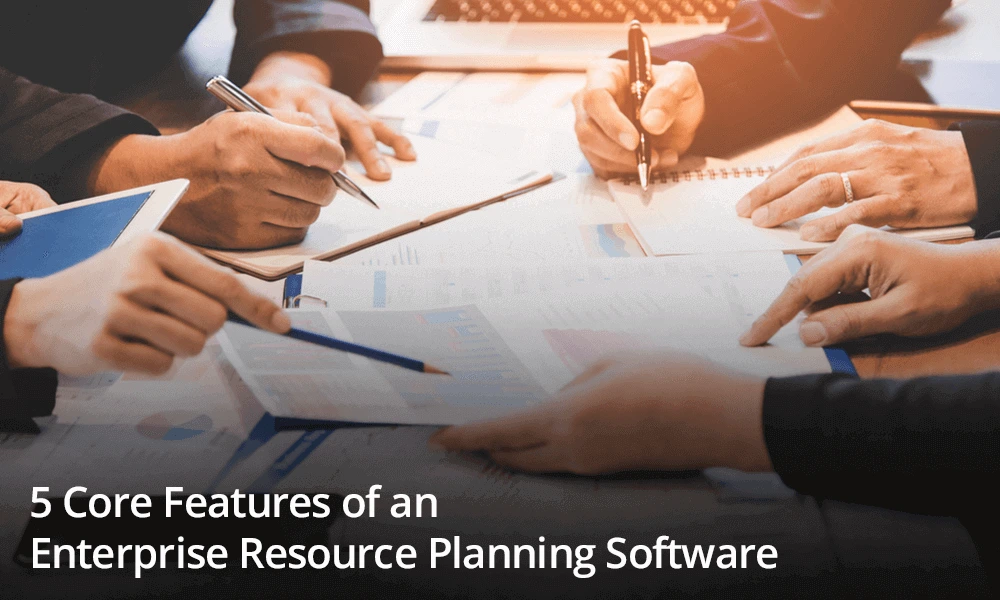Enterprise Resource Planning software a.k.a ERP is an integrated solution that helps you in managing and automating organisation-wide operations. This tool has been gaining popularity amongst both large-scale and small-scale businesses for its ability to offer a centralised system. If you install the right ERP solution, you can garner, store, and manage business data from different departments. As standard data is shared across the organisation via this software, it eliminates duplication and offers data integrity.
Following are the core features of an ERP software that transforms your organisation:
1.Financial Management
This component stores, monitors, and analyses your company’s financial data such as amount payable, amount receivable, costs, budgets, and more. It offers insights on your transactions, which help you to identify profit trends, high spendings, and more. Using this data, you can make changes in processes that cause lower profits and higher operational cost.
2.Customer Relationship Management
The right ERP software supports your sales and marketing team with important data. This data enables you to understand customer needs, preferences, buying behaviour and pattern. The CRM feature keeps a track of all your customer data and interactions. You can optimise your sales and marketing techniques using the insights provided by the CRM module.
You can improve the invoicing process, track buyer histories, and monitor the status of every contract. And when you have customer data in your system, you can also cross-sell or upsell a product or a service.
3.Sales and Marketing
The right ERP manages operations like sales enquiries, quotations, sales orders, and more. Sales & Marketing and CRM modules work in sync to speed up the sales process resulting in increased profits.
As the business grows, it becomes difficult to calculate your sales and profits manually, With an ERP system, calculations are automated. This not only accelerates the process but also eliminates manual errors.
4.Supply Chain Management
ERP solutions primarily cater to manufacturing and logistic businesses, and thus they monitor demand, supply, manufacturing status, logistics, and more in the record time.
Your ERP must offer the best SCM feature, so the tool can optimise your supply chain. Real-time data enables you to observe the process, and further identify and fix issues as soon as they occur. Due to the availability of real-time data, this feature can aid your business with demand planning, ensuring you never lack or have stock in excess.
5.Manufacturing
An ERP software increases the efficiency of the whole manufacturing process. The bill of material, production scheduling, shop floor control, and distribution planning are the primary functionalities of this module. It operates closely with SCM, and uses product serial numbers for tracking and locating goods. You can gauge stock targets and standardise inventory-related goals via inventory control. An ERP solution supports the Supply Chain Manager with the right figures of inventories that are in hand and the ones that are shipped out.
ERP software programs have a solution for every area of a business. And while installing one for your organisation, you must ensure that it helps you streamline and optimise every process.
At SourcePro, we offer a configurable ERP software, which offers all the aforementioned features, along with additional benefits like real-time data, instant reports, accurate analytics, all-round accessibility, and more. Contact us to know how New Horizon can support your business growth and expansion.
